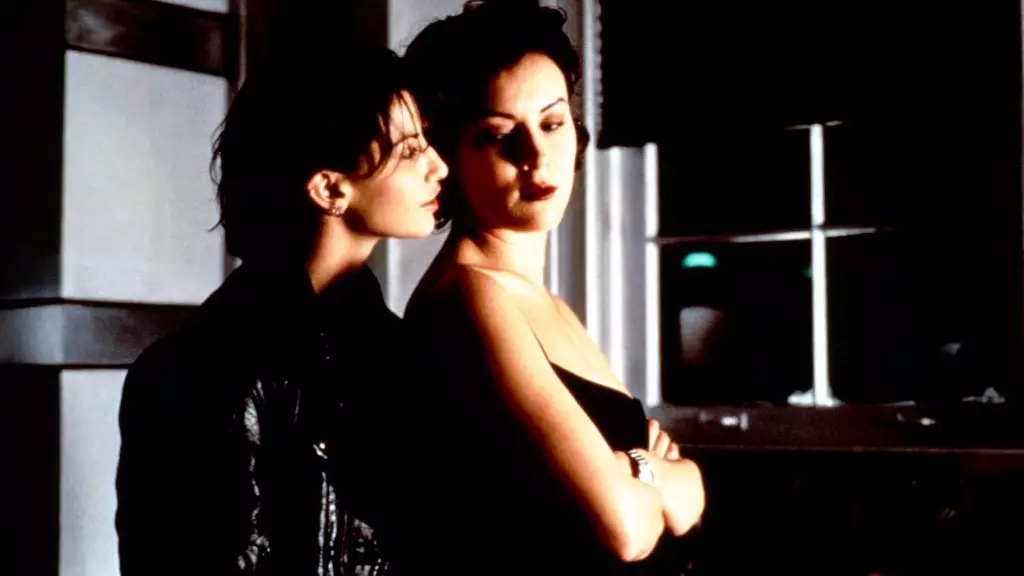In an industry where typecasting often leads to early career demise, Gina Gershon’s decision to collaborate with the Wachowskis on their debut film, *Bound*, stands out as a remarkable act of courage. At a time when Hollywood was plagued by conservative views on sexuality, Gershon faced immense pushback from her representatives who were deeply concerned about the implications of her taking on a queer role. Their apprehension illustrated a fear deeply rooted in the era’s taboos, as they cautioned her that embracing a character who loves another woman could spell disaster for her career. Yet, Gershon showed resilience and determination, choosing to prioritize her artistic integrity over fear of ostracism.
Gershon’s insistence on taking the role stemmed from her genuine belief in the quality of the script and the talent of the directors. She perceived *Bound* not merely as a story about a lesbian relationship but as a broader narrative exploring themes of trust, betrayal, and the human condition. This perspective challenges the reductive view that often labels films based solely on sexual identity. Gershon’s refusal to accept her agents’ narrow-minded warnings demonstrates her commitment to storytelling that transcends societal labels. In her view, the focus of *Bound* was less about the sexual orientations of its characters and more about the intricate web of loyalty and ambition that defines human relationships.
The partnership with Lana and Lilly Wachowski transformed Gershon’s career trajectory. Emerging from the shadow of *Showgirls*, a film that itself faced considerable detractors, she embraced *Bound* as an opportunity to redefine her public persona while simultaneously supporting groundbreaking filmmakers. By aligning with the Wachowskis, Gershon was endorsing not just their specific vision but also a shift in the industry toward more diverse and inclusive narratives. This act contributed to the normalization of queer representation in mainstream media, paving the way for future projects that prioritize varied gender identities and sexual orientations.
Gershon’s decision has echoed through the annals of cinematic history, establishing *Bound* as a cult classic and enhancing the visibility of LGBTQ+ stories in film. The richness of her character Corky, combined with the complex narrative that the Wachowskis crafted, challenged stigmas and stereotypes prevalent in the ’90s. Gershon’s attitude towards her agents’ fear-mongering reflects a larger industry conflict, where societal perceptions often hold sway over creative endeavors.
In retrospect, she recognizes that pursuing an unconventional path was not merely an act of rebellion but a necessary step towards authentic representation in the arts. Gershon’s journey illustrates not only the power of individual choice but also the importance of allies in the quest for broader acceptance and recognition of diverse narratives in film. The impact of her decision continues to resonate today, inspiring upcoming generations of artists to take risks for the sake of authenticity and representation. Through her boldness, Gershon has left an indelible mark on both her career and the evolving landscape of cinema.


Leave a Reply